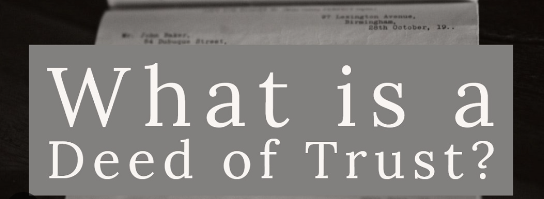Deciding whether to remortgage your home is a huge financial decision and should not be taken lightly. It can be beneficial in certain circumstances and at various times.
Interest rates can fluctuate so take advantage of lower rates
If interest rates have decreased since you took out your original home loan, remortgaging may allow you to obtain a mortgage with a lower interest rate. This could result in lower monthly payments and potentially save you money over the duration of the loan.
Have a look at your long-term financial goals
If you want to reduce your monthly payments, shorten the term of your mortgage or release equity in the home for improvements, remortgaging might be a suitable solution.

What is a Deed of Trust?
In the UK a Deed of Trust (also known as a Declaration of Trust) is a legal document which describes how a jointly owned property is divided. They are often required by unmarried couples or where multiple people, who may or may not be family members, buy a property. If you require a Deed of Trust, a specialist such as https://www.samconveyancing.co.uk/news/conveyancing/deed-of-trust-4378 can provide guidance, help you understand the implications of the arrangements and ensure that the document meets legal requirements.
What is the current housing market like?
According to Zoopla, UK property is selling in 34 days on average. Look at current market conditions and the various lenders’ mortgage rates. Economic factors can influence interest rates, and it may be advantageous to remortgage when rates are lower.

Don’t move from your current deal before checking first
Check the terms of your current mortgage deal, including any fixed or tracker rate periods. If you’re currently on a fixed-rate deal and considering remortgaging, be aware of any possible repayment charges or fees that may apply if you exit early.



